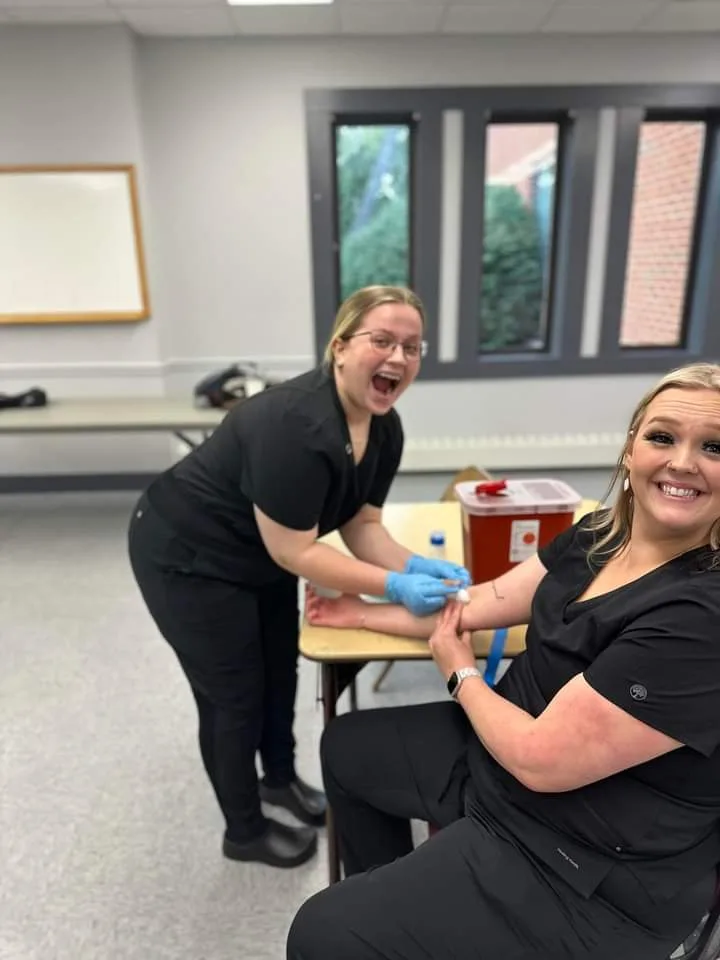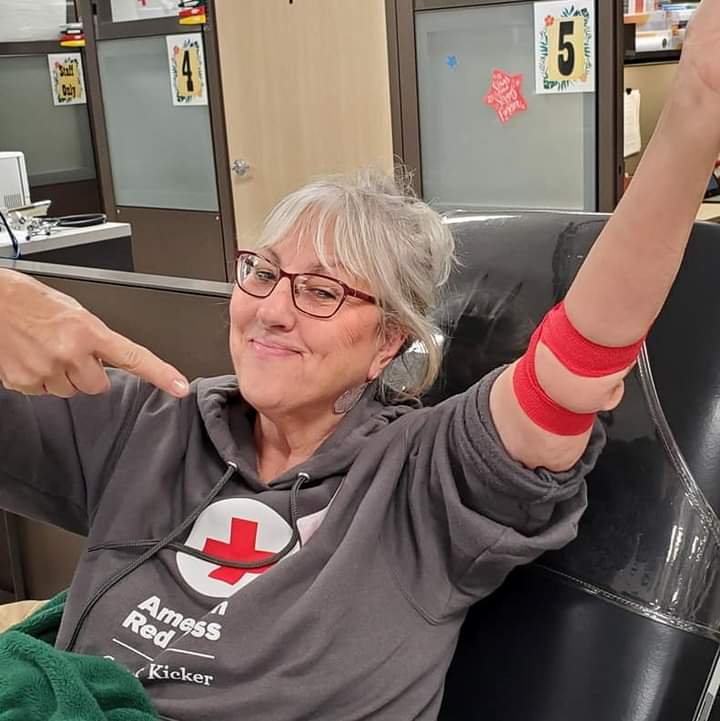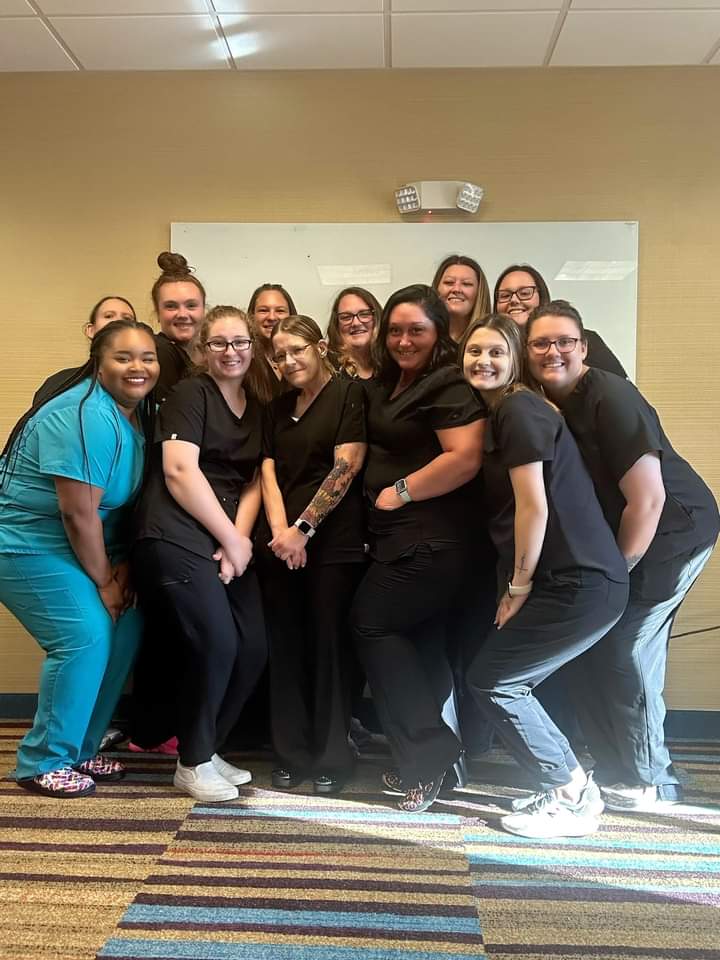Travel Phlebotomist-Introduction-:
Many people have a passion for both travel and the medical industry. What if you could turn these two passions into a distinctive and rewarding career? Explore the realm of a “Travel Phlebotomist.” This blog article will discuss the fascinating life of a professional blood drawer who also enjoys traveling and interacting with a wide range of people.

The Journey Begins: Becoming a Travel Phlebotomist
1. Education and Certification
You have to start with the fundamentals in order to go on this adventure. Usually, the prerequisites are a high school degree and enrollment in a phlebotomy training course. Getting certified once training is over is essential for credibility and employment prospects.
2. Gaining Experience
It is imperative to obtain experience in a standard healthcare setting prior to embarking on a journey. A lot of travel phlebotomists start out at clinics, hospitals, or labs where they hone their craft and get a solid foundation in phlebotomy.
The Road Less Traveled: Life on the Move
1. Assignments and Contracts
The freedom to operate from any location is a key characteristic of a travel phlebotomist. Professionals can travel to numerous places with the weeks-long to months-long projects that agencies frequently offer. For these healthcare travelers, diversity is the flavor of life, whether they work in a busy city hospital or a small-town clinic.
2. Adaptability and Flexibility
Being flexible is essential since every new task presents a different set of difficulties. A travel phlebotomist needs to be adaptable and quick to respond to various situations, such as working with diverse patient populations or adjusting to new healthcare systems.
Challenges on the Road: FAQs
Q1: How do travel phlebotomists manage state-specific license requirements?
Answer: It is imperative for travel phlebotomists to thoroughly investigate and comprehend the licensure prerequisites in every state where they intend to operate. Reciprocity agreements are common among states, which streamlines the procedure. Some, though, can call for further credentials or paperwork.
Q2: What kinds of environments are employed by travel phlebotomists?
Answer: Travel phlebotomist can be employed at a range of facilities, such as clinics, hospitals, labs, and even mobile blood donation units. The variety of tasks enables experts to obtain knowledge in many facets of phlebotomy.
Q3: What housing arrangements do travel phlebotomists make while on assignment?
Answer:Numerous travel phlebotomy companies help their workers find lodging while on duty. On the other hand, some people would rather find their own lodging and get a housing allowance from the organization.

The Rewards of Wanderlust in Healthcare
1. Professional Growth
Travel phlebotomists gain a broad range of experiences from working in various environments, which advances their careers. Their skill set is enhanced by managing a variety of cases and collaborating with other healthcare specialists.
2. Cultural Enrichment
Travel phlebotomists benefit from cultural enrichment in addition to professional development. Traveling the world, experiencing new cities, sampling local cuisine, and interacting with people from other backgrounds all add to a rich and satisfying life experience.
3. Financial Incentives
Financial incentives are an additional benefit in addition to the experience. In addition to benefits like housing allowances, travel reimbursements, and health insurance, travel phlebotomists frequently earn excellent incomes.
Conclusion: A Unique Fusion of Healthcare and Adventure
Being a travel phlebotomist is a way of life rather than just a job decision. These professionals find fulfillment at the special junction where their two passions intersect—balancing the duties of healthcare with the joy of exploration. Be it conquering obstacles or savoring the benefits, the life of a travel phlebotomist is an incredible voyage that is well worth embarking upon.

FAQs - Quick Recap
Q1: How do travel phlebotomists manage state-specific license requirements?
Answer:Learn about and comprehend each state’s licensure requirements. Reciprocity agreements exist in some states, while further certifications could be needed in others.
Q2: What kinds of environments are employed by travel phlebotomists?
Answer:Travel phlebotomists can find employment in blood donation mobile units, clinics, hospitals, and labs. Different experiences are made possible by the variety of assignments.
Q3: What housing arrangements do travel phlebotomists make while on assignment?
Answer:Organizations frequently help with housing arrangements, or people can find their own place to live and get a housing allowance.
In conclusion, being a travel phlebotomist is not just a job; it’s an opportunity to blend a healthcare career with a love for travel, creating a unique and fulfilling lifestyle.

1 thought on “Travel Phlebotomist”